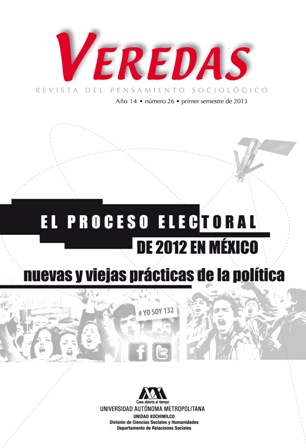Televisoras privadas, elecciones del 2012 y límites de la democracia formal en México
Abstract
The intolerant corporate behavior that the Mexican TV duopoly showed during the elections of 2012, when it refused to broadcast the first presidential debate, confirmed its tendency to oppose the construction of democracy in Mexico. Its objective was to avoid that this debate could create a more open or plural discussion about social communication that could jeopardize the monopolistic interests already conquered. Driven by the ambition of maintain the enormous, unlimited and unilateral privileges, gained after decades of becoming allies of the traditional authoritarian political forces in the country, these monopolies have systematically impeded the creation of plural systems of social communication. For this reason, it is urgent that the civil society demands the Congress of the Union to approve a new telecommunications law, which modifies the inequitable relationship that exists today, between the informative monopolies, the State and the society, introducing a new democratic pact between these actors.





